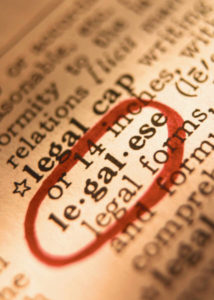
07 Jul The Couch – Where we analyze our professional dilemmas
Posted at 02:27h
in Ethics, Interpreting, Professional Practices, Recent Posts, Translation
6 Comments
The Couch is back. This is a space where we can share our doubts, our knowledge and help our colleagues. All data that might make the parties or case identifiable have been removed.
Please note: all contributions should be sent to the Editor and not entered in the comments.
How do you correct a gross error in an official translation submitted as evidence during a sight translation ?
We all have met them. Those terms that are spelled and sound so close to something else in the target language that, for a split sec ond, the tongue is ready to unleash the offending translation or the fingers start typing the misleading phrase. We usually reach to a dictionary just to make sure our doubts are well founded and ensure that we deliver to our clients the right rendition of the terms.
ond, the tongue is ready to unleash the offending translation or the fingers start typing the misleading phrase. We usually reach to a dictionary just to make sure our doubts are well founded and ensure that we deliver to our clients the right rendition of the terms.
 ond, the tongue is ready to unleash the offending translation or the fingers start typing the misleading phrase. We usually reach to a dictionary just to make sure our doubts are well founded and ensure that we deliver to our clients the right rendition of the terms.
ond, the tongue is ready to unleash the offending translation or the fingers start typing the misleading phrase. We usually reach to a dictionary just to make sure our doubts are well founded and ensure that we deliver to our clients the right rendition of the terms.What happens, however, when you are handed a certified, notarized translation to read back – in sight translation – to the deponent and the error is right there, staring back at you (the original had not been found). The translation has been accepted, arguments have been plotted based on it, your client is hanging on the effect of that reading on the deponent to continue. Now what?
Our colleague first breathed a sigh of relief: it was not her translation; but then, how was she supposed to handle the situation?
We all agree the error should be brought to the attention of the client. What procedure would you recommend for our colleague? Can you also explain why?

Bring it to the attention of the translator to amend the legal document so that the amended translation can be used
Jessica, I don’t think they are going to interrupt the deposition, leave it on hold for however long it takes to locate the translator and wait for the translator to correct the document. It is counter-productive to the need for speed. I, for one, believe the interpreter should have read the document, marked the error and called for a discussion with the attorney who hired her. Explained the issue and let the attorney decide how to handle it.
Our colleague did not specify language, but in Brazilian Portuguese I have seen Ministério Público (prosecution office, prosecution) translated as Public Ministry – I feel like asking “what is the church’s denomination?”. In a case like this, I would not need to see the original to identify the error.
So you are looking at the translation into English of an original document that is not itself present, and the wording makes you think that the translator made an error of the “false friends” variety? So if you interpret the meaning of the bad translation correctly to the deponent, it will be different from the original and the deponent will be able to tell, right?
It sounds as though the problem should fix itself without extra effort by the interpreter. The most I would do is make sure to sight-translate slowly and carefully so as to give the deponent plenty of time to register what is being said there, including the possible mistake. Additionally I would be sure to make raised-eyebrow eye contact with the deponent at intervals so as not to obscure the fact that they are being given an opportunity to respond. If the deponent does not flag the error, it’s on them.
I’m with you Margaret!
This comment was sent by a colleague who is not a NAJIT member:
All the actors in a court of justice (Judge, Attorneys, Jury and Interpreters) share ONE common goal: that of achieving justice to the person standing trial in a criminal or civil suit.The interpreter is no exception to that rule and should play his part in ascertaining the facts of the case. During the trial, the interpreter plays the role of mouthpiece or spokesman to the accused. In my humble opinion a judicial method should be devised to allow him to retrieve everything he intimated to the court on behalf of the person standing trial e,g, a full record of the interpretation. Should a major discrepancy be discovered in such record (by either interpreter or counsel) such discrepancy should be corrected without adverse consequence to the interpreter as long as he/she has acted in good faith.
Ibrahim Elmekki
melmekki@aol.com